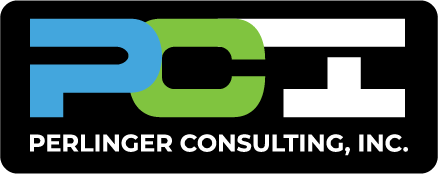Should Small Businesses Use Payment Apps?
Apps like Venmo, Zelle, PayPal, and Cash App are everywhere—and for good reason. They’re fast, easy to use, and let you move money in seconds. But should small businesses use payment apps as part of their financial process?
At Perlinger Consulting, Inc. we often work with clients in Littleton, Centennial, and throughout the Denver Metro area who are trying to find the right balance between speed and structure. If you’ve been using apps to pay vendors, accept deposits, or reimburse team members, you’re not alone.
But convenience can turn into chaos if those payments aren’t properly documented, tracked, and integrated with your accounting system.
Let’s look at what small business owners should consider before using payment apps—and how to use them responsibly if they’re already part of your routine.
The Appeal: Speed and Simplicity
Most small business owners didn’t start out loving spreadsheets. So when a client asks to pay via Venmo, or you need to quickly send funds to a subcontractor, apps like Zelle and PayPal can feel like lifesavers.
We’ve seen tradespeople, consultants, and side hustlers turn to these tools for:
- Quick reimbursements
- Final client payments
- Paying independent contractors
- Splitting job site costs with partners
But should small businesses use payment apps as a regular part of operations? That depends on how they’re managed behind the scenes.
Where Problems Start: In the Books
Payment apps can break your accounting process if they’re not handled correctly. Here’s how:
- No audit trail: Venmo and Zelle don’t always provide full transaction details or receipts
- Mixed-use accounts: Personal and business transactions often blend together
- Manual recording: Many small business owners forget to record payments made or received via apps, leading to inaccurate books
- Duplicate income: Depositing app funds into your business bank account can create double entries in QuickBooks if not reconciled properly
Even the IRS has taken notice. As of 2024, platforms like PayPal and Venmo are required to report business-related payments over $600. So if your records are incomplete, that could lead to unexpected tax issues.
Best Practices: How to Use Payment Apps Responsibly
If you’re going to use them, here’s how to do it the right way.
1. Set Up a Business Account
Apps like Venmo for Business or PayPal Business are designed specifically for commercial use. They allow you to:
- Track customer payments
- Generate basic reporting
- Keep business and personal funds separate
- Provide better protection in case of disputes
✅ Avoid using personal accounts for business transactions—it muddies the waters and makes reconciling difficult.
2. Reconcile Everything in QuickBooks
Payment apps don’t automatically talk to your accounting software—unless you make them. Here are two ways to stay on top of it:
- Link supported apps (like PayPal) directly to QuickBooks Online
- Export CSV files from apps that don’t integrate and manually import them
- Tag every transaction with customer names, job numbers, or payment purpose
💡 Need help cleaning up your QuickBooks file? Our QuickBooks consulting services can help.
3. Keep a Digital Paper Trail
For every payment you make or receive, document the following:
- Who it was to/from
- What it was for
- When it happened
- Proof of the transaction (screenshot, confirmation email, or app receipt)
Then store it with your digital records—or link it inside QuickBooks for easy future reference.
4. Avoid Public Wi-Fi and Enable MFA
Apps like Venmo and Zelle aren’t immune to security risks. Always:
- Enable two-factor or biometric login
- Avoid making payments on public Wi-Fi
- Use a dedicated business device when possible
- Restrict access to team members who need it
5. Review Transactions Monthly
Make app reconciliation part of your monthly close process. It only takes a few minutes but can prevent hours of cleanup later.
If you’re not sure how to structure a monthly close process, our blog post “The Overlooked Power of Monthly Close Rituals” breaks it down into simple, actionable steps.
The Bottom Line: Think Before You Tap
Should small businesses use payment apps?
Only when the process behind them is just as solid as the tool itself.
Payment apps can be incredibly helpful, but they’re not a substitute for organized books, reconciled accounts, and structured accounting systems. If you’re relying on Venmo or Zelle for convenience, make sure your financial foundation is still built on accuracy.
Want to learn more about small business accounting?
Internal Links:
- ✅ Bookkeeping for small business
- ✅ QuickBooks consulting services
- ✅ Streamlined accounting systems
- ✅ The Overlooked Power of Monthly Close Rituals
Payment Apps:
📍 Based in Littleton, CO, Perlinger Consulting helps service-based small business owners across Colorado and beyond build smarter, cleaner bookkeeping systems that grow with them—not against them.
📞 Call Glenn at 720-290-4389
🌐 perlingerconsulting.com
Disclaimer: This post is for educational purposes only and reflects best practices as of the publication date. Perlinger Consulting, Inc. is not affiliated with Intuit® or any third-party payment platforms. Always confirm app settings, permissions, and usage terms directly with the provider. References to specific tools or platforms do not constitute endorsements. For the most current information, please consult official product documentation or support services.
